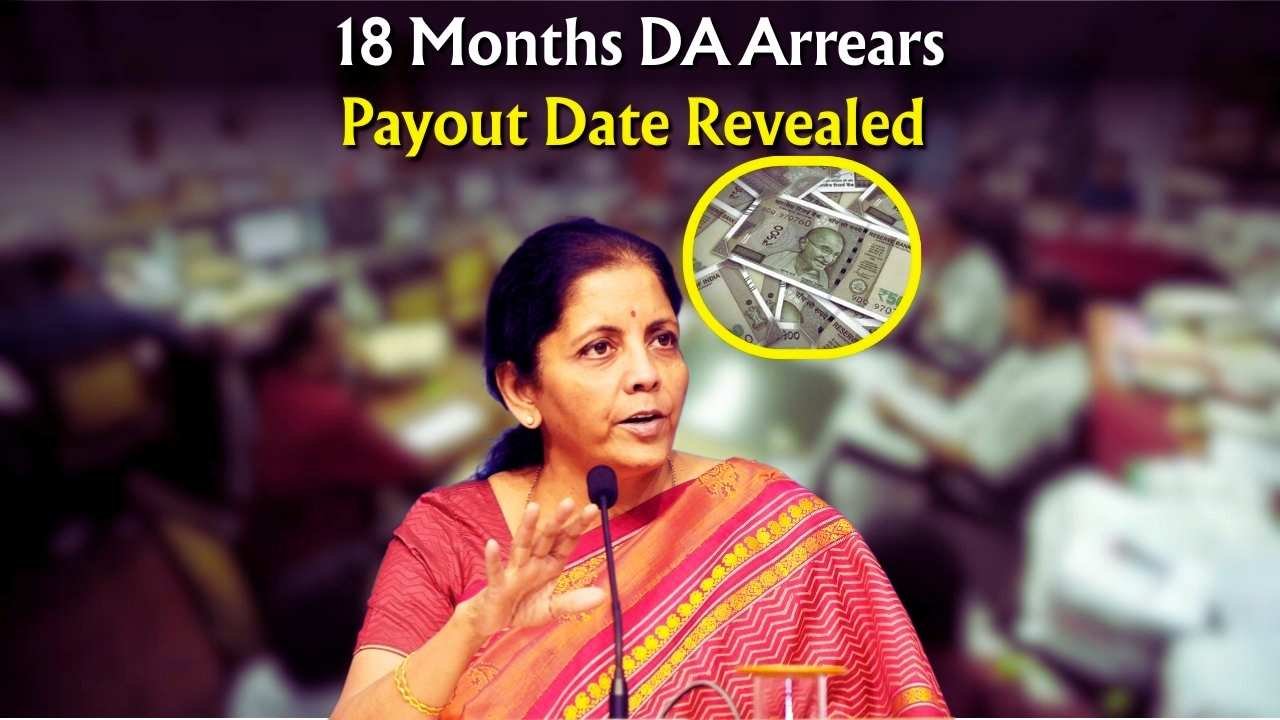Central government employees and pensioners in India have been eagerly waiting for news about their 18-month Dearness Allowance (DA) and Dearness Relief (DR) arrears, which were held back during the COVID-19 pandemic. Recent updates suggest that the government might finally release these payments, bringing relief to over one crore workers and retirees. The National Council (Joint Consultative Mechanism) has been pushing hard, and sources say a big decision could come by late 2025 or early 2026. This news has sparked hope, but some are still worried about delays or changes in plans. Here’s everything you need to know about what’s happening.
Why Were DA Payments Stopped?
During the COVID-19 crisis, from January 2020 to June 2021, the government paused three DA and DR instalments to ease financial pressure. This meant 18 months of payments were held back, affecting employees’ salaries and pensioners’ income. The decision saved the government around ₹34,402 crore, but it left many struggling with rising costs. Now, with the economy improving, workers and unions are demanding these arrears, saying they worked tirelessly during the tough times and deserve their dues.
What’s the Latest Update?
The National Council (JCM) raised the issue again in its 63rd meeting in June 2025, pressing the government to release the 18-month arrears. Sources hint that discussions are moving forward, with a possible payout date set for early 2026, likely around January or February. The exact amount depends on your pay level, but estimates suggest employees could get between ₹11,880 and ₹2,18,200, based on their basic salary. For example, someone with a ₹18,000 basic salary might receive ₹11,880, while higher-level staff could see up to ₹2.18 lakh. Here’s a quick look at possible payouts:
| Pay Level | Basic Salary Range | Estimated DA Arrears |
|---|---|---|
| Level-1 | ₹18,000 | ₹11,880 |
| Level-13/14 | ₹1,23,100–₹2,15,900 | ₹1,44,200–₹2,18,200 |
What the Government Says
The Finance Ministry has been cautious, citing the huge cost of releasing ₹34,402 crore in arrears. In recent Parliament sessions, they said the economy is still recovering from the pandemic’s impact, making it tough to pay out right now. However, pressure from unions and MPs, like Anand Bhadauria, has kept the issue alive. The government has hinted at reviewing the matter if finances improve, especially with the fiscal deficit dropping from 9.2% in 2020-21 to 4.4% in 2025-26 (budget estimate). This gives employees hope that a decision might come soon.
What Employees and Unions Are Doing
Employee unions, led by figures like Shiv Gopal Mishra, are not giving up. They’ve written to the Prime Minister and held meetings to demand the arrears, arguing that workers and pensioners deserve justice for their hard work during the crisis. Some unions are even planning protests if the government delays further. They’ve also pointed to a Supreme Court ruling that says delayed payments should include 6% interest, adding weight to their case. Pensioners, backed by groups like the Bharat Pensioner Samaj, are equally vocal, saying this is about fairness, not just money.
What You Should Do Now
While no final date is confirmed, employees and pensioners should stay ready. Keep your bank details updated with your department to avoid payment issues. Watch for official updates from the DWP or government websites, as notices might come by post or online. If you’re a pensioner, check if your pension account is linked correctly. With talks pointing to a possible release in early 2026, staying informed will help you get your money without delays. For now, the hope is high, and this could be a big win for central government workers and retirees across India.
